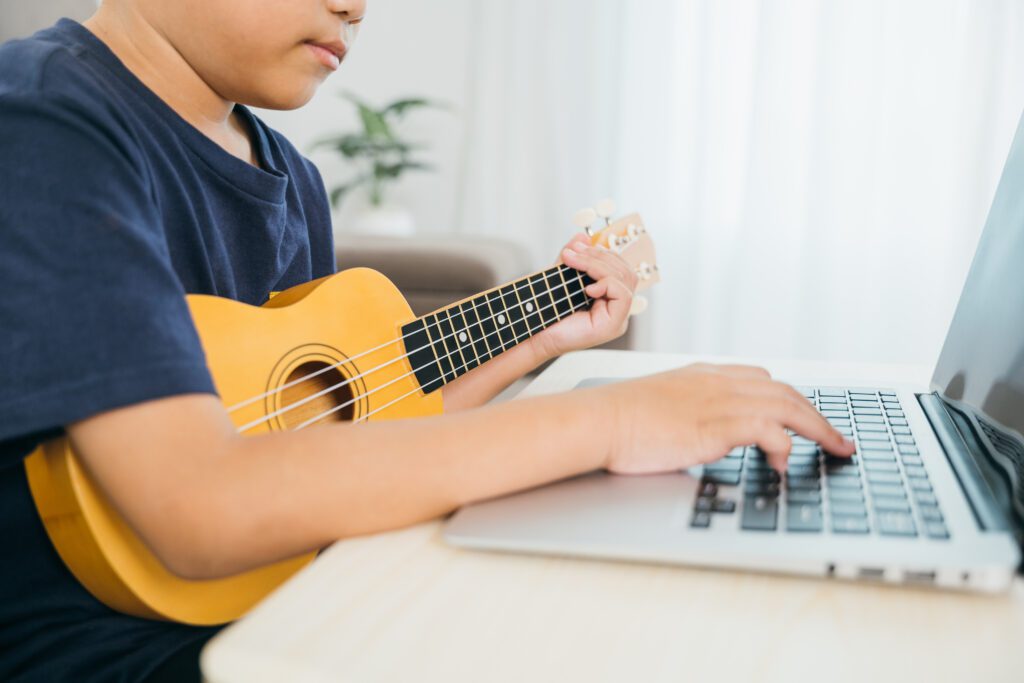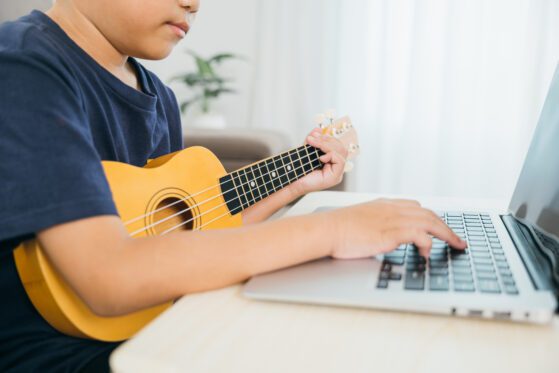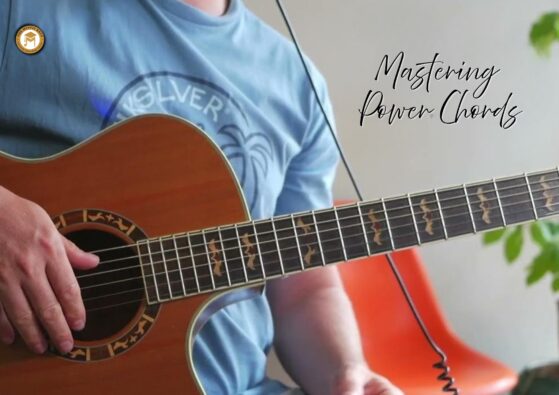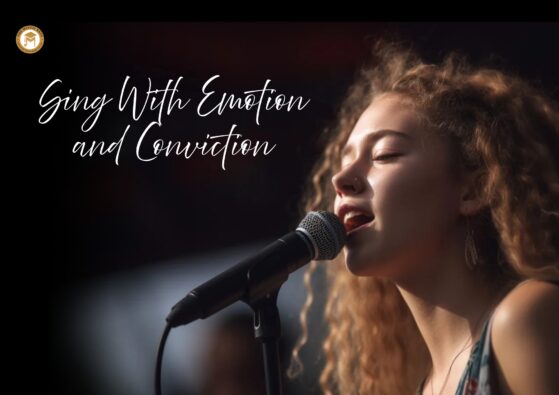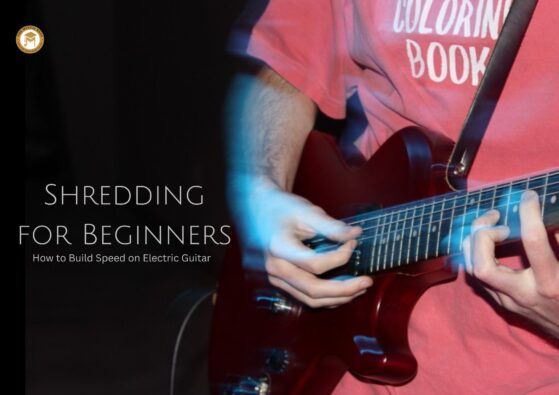5 Ways to Keep Kids Motivated in Learning Music Online
Online music lessons have made it easier than ever for kids to start learning an instrument. But let’s be honest to motivate kids in learning music online, especially during virtual classes, can be a real challenge.
Distractions are everywhere, and without in-person interaction, their focus might wander. So, how do you keep your little musician excited, involved, and progressing?
Here are 5 fun and effective strategies to help kids stay motivated in their online music lessons journey!
1. 🏆 Turn Practice into a Game
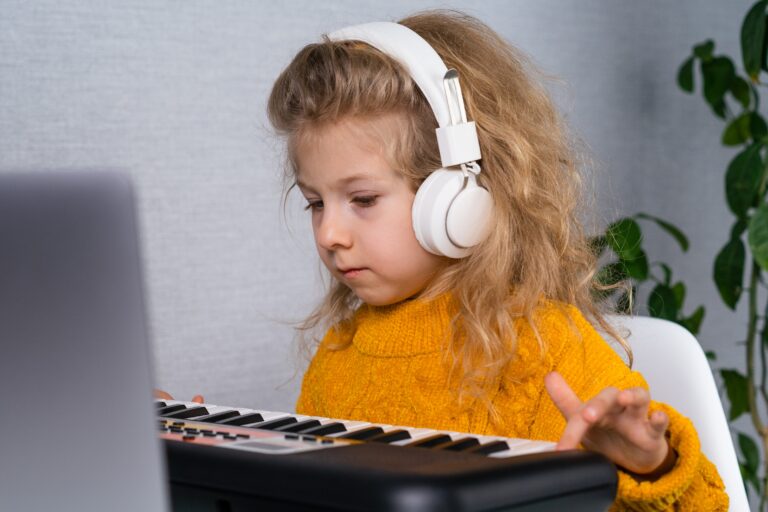
- Kids love games—and music practice can become one too!
- Use timers for “beat the clock” challenges
- Give points for correct notes or completed sections
Create a reward chart with stickers or starsGamifying music practice makes it fun and goal-oriented, which keeps kids engaged without pressure.
2. 🎶 Let Them Choose Songs They Love
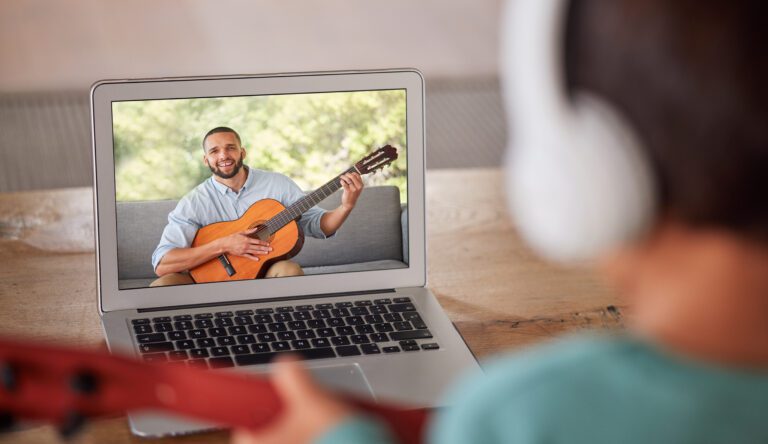
- Instead of only focusing on curriculum-based exercises, let kids learn songs they already enjoy—be it from cartoons, movies, or YouTube.
- Familiar melodies spark their excitement and give them a personal connection to the music.
Tip: Mix 70% structured learning with 30% fun and familiar songs to keep the joy alive.
3. 🎥 Record and Celebrate Their Progress
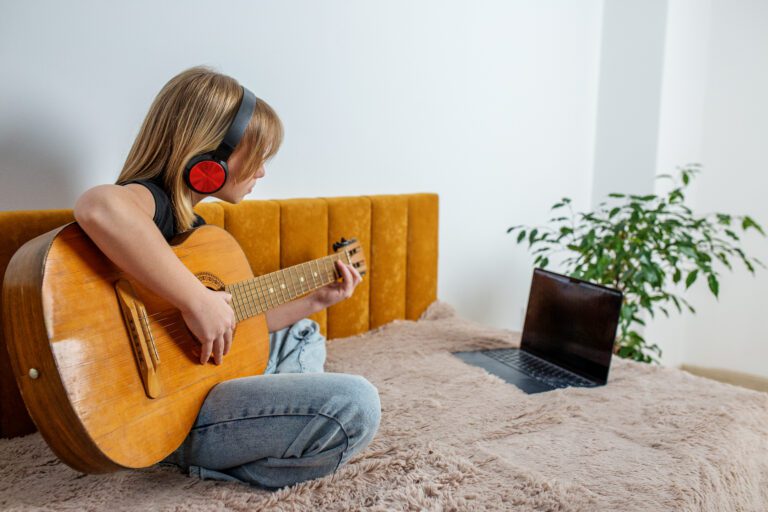
- Kids love watching themselves! Recording their small achievements— like the first time they play a song smoothly—gives them a confidence boost.
- At The Mystic Keys, we encourage parents to:
- Record short videos of their child’s progress
- Share it with family or even post in the student group
- Watch old videos together to show how far they’ve come
- This helps children feel proud and motivated to keep going.
4. 🧸 Keep Sessions Short, Focused & Interactive

- Children have short attention spans. Instead of long, drawn-out classes, it’s better to:
- Have short, focused sessions (20–30 minutes for younger kids)
- Add interactive elements like clapping rhythms, quick quizzes, or music games
- Use visual aids, colorful notes, and digital tools
At The Mystic Keys, our expert teachers use creative ways to make Zoom lessons child-friendly and energetic.
5. 💬 Be Their Cheerleader (Not a Drill Sergeant)
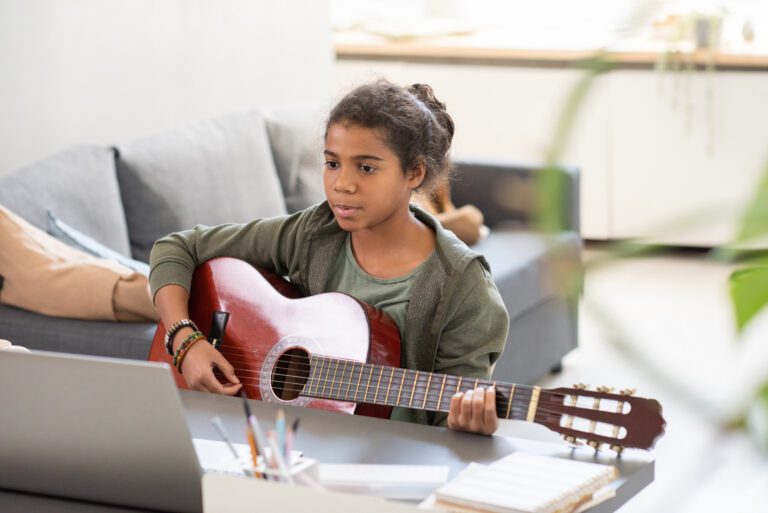
- Your encouragement means everything. Instead of pressuring them to practice:
- Celebrate even small achievements
- Acknowledge effort more than perfection
- Use kind words like “Wow! That’s sounding better!” or “You’re learning so fast!”
When kids feel supported, not judged, they develop a positive emotional connection to music—which is the key to long-term motivation.
🎓 Final Note
Online music lessons make it easier than ever for kids to learn an instrument. But let’s face it—to motivate kids in learning music online can be tough with so many distractions.
So how do you keep them engaged and excited?
🎵 Motivating kids to learn music online is all about mixing structure with fun. Involve them, cheer them on, and make it playful—and they’ll stay inspired, not just in music, but in life.
🎵 Learn with The Mystic Keys
We offer:
- Child-friendly one-on-one classes
- Fun and interactive learning approach
- Personalized guidance from expert teachers
- Recordings and structured lesson plans
- Easy scheduling and parent support
📞 Enroll your child today and let their music journey begin with joy
Related Blogs
Music Theory Guide For Beginner’s
This Music Theory Guide is perfect for beginners who want to understand how music works—from notes and scales to chords and rhythm. It lays a strong foundation that helps musicians of all levels gain clarity and confidence in their playing, composing, or singing.
The Best Way to Train Your Ear for Music
A well-trained ear is one of the most valuable tools any musician can have. Whether you’re a singer, instrumentalist, producer, or composer, your ability to recognize pitch, rhythm, harmony, and melody will significantly enhance your creativity and confidence.
The voice is an incredible gift. It’s how we sing, teach, inspire, and connect. But like any instrument, it needs proper care to remain strong, clear, and resilient. Vocal strain is a common challenge faced not only by singers, but also by teachers, speakers, coaches, content creators—anyone who relies on their voice daily.


